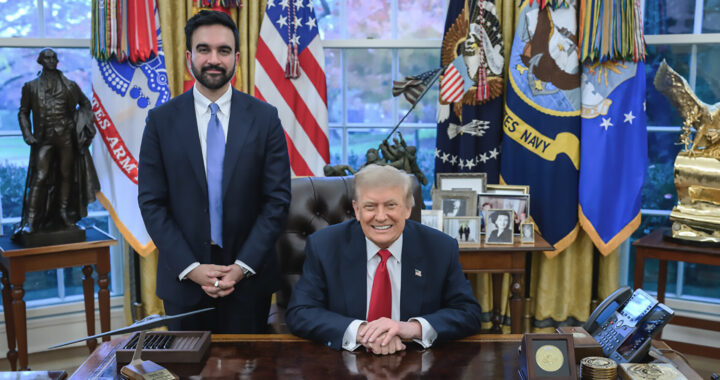U.S. President Donald Trump and New York City Mayor-elect Zohran Mamdani had a sharp shift from months of hostile public exchanges when they held an unexpectedly cordial meeting in the Oval Office on 22 November 2025. Their discussion centered on housing affordability, rising consumer costs, and potential federal support for New York City programs.
The meeting gained attention due to the earlier antagonistic relationship between the two figures. Trump had labeled Mamdani a “100 percent communist lunatic” during the summer campaign, while Mamdani had repeatedly warned that the Trump administration has authoritarian impulses that endanger democratic institutions and vulnerable communities.
Both leaders adopted measured language and emphasized shared priorities. Trump stated that several proposals presented by Mamdani, particularly regarding inflation-related pressures, aligned with his own goals. Mamdani highlighted a common objective of reducing economic burdens for New Yorkers through coordinated federal and municipal actions.
Trump intervened multiple times to defend Mamdani from pointed press questions. These include inquiries regarding previous statements in which Mamdani described the governing style of Trump as fascistic. Trump redirected the discussion toward cooperation and argued that the executive role often reshapes political viewpoints through cumulative governing pressures.
Policy discussions focused primarily on accelerating federal housing funds, stabilizing grocery and utility costs, and exploring mechanisms to expand affordable developments within New York City. Trump stated that he wanted to see improvement in living conditions and expressed support for an expanded federal partnership that could advance municipal objectives.
The interaction also included a reversal by Trump of prior threats to restrict federal funding. Trump declared that such were unlikely and emphasized an interest in constructive collaboration. Mamdani affirmed that the conversation avoided ideological disputes and instead prioritized measurable outcomes related to affordability and economic resilience.
Significant strategic benefits for both figures were observed. Mamdani, a previously lesser-known state legislator before he was elected mayor, gained national visibility through the meeting. Trump simultaneously projected bipartisanship while addressing voter concerns regarding city-level inflation trends that influenced federal economic approval ratings.
The meeting hints at a potential recalibration of political dynamics between the White House and New York City leadership. Whether the cooperation results in substantive policy outcomes remains uncertain, but the unexpectedly conciliatory tone signaled a willingness by both parties to prioritize immediate economic challenges over long-running ideological conflict.
